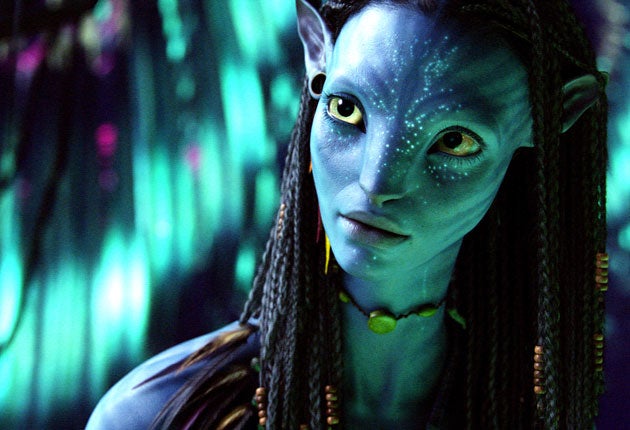3D gaming aspires to become spectacle

Your support helps us to tell the story
From reproductive rights to climate change to Big Tech, The Independent is on the ground when the story is developing. Whether it's investigating the financials of Elon Musk's pro-Trump PAC or producing our latest documentary, 'The A Word', which shines a light on the American women fighting for reproductive rights, we know how important it is to parse out the facts from the messaging.
At such a critical moment in US history, we need reporters on the ground. Your donation allows us to keep sending journalists to speak to both sides of the story.
The Independent is trusted by Americans across the entire political spectrum. And unlike many other quality news outlets, we choose not to lock Americans out of our reporting and analysis with paywalls. We believe quality journalism should be available to everyone, paid for by those who can afford it.
Your support makes all the difference.For movie goers, watching a 3D film is a relatively easy experience. Audiences didn't need to do anything other than pay a few extra bucks and slip on a pair of special glasses to see 3D versions of "Avatar" or "Alice in Wonderland." For gamers, however, enjoying a 3D game requires a bigger investment on their part.
For example, to play the popular online fantasy game "World of Warcraft" in 3D, an inhabitant of Azeroth would need hundreds of dollars worth of gear: a robust computer setup with a compatible graphics card, monitor capable of displaying 3D and a pair of 3D spectacles. At this early stage, it's an expense that many virtual adventurers have yet to adopt.
Dozens of game developers, business executives and other stereoscopic 3D gaming advocates converged at a Universal City hotel this week to explore that very conundrum and witness the latest in 3D games at the first-ever 3D Gaming Summit. The consensus was that whether gamers push play on 3D or not, the home 3D revolution is already in motion.
Television makers Samsung and Panasonic are now selling 3D TVs. Movie studios Universal and Disney have released 3D films on Blu-ray, such as "Coraline" and "The Polar Express." Discovery Communications and ESPN previously announced they will launch their own 3D networks, with ESPN first broadcasting FIFA World Cup soccer in 3D this June.
"We've got to tell people about it," said Phil Eisler, general manager of Nvidia's 3D Vision, which makes graphics cards with 3D processing power. "Hollywood has done a fantastic job of educating consumers and marketing to them about the wonderful experience in the theater. We need to tell consumers about the wonderful experience that games are in 3D."
For many modern games, the leap to 3D is actually just a step. The medium is well suited for 3D because the majority of today's games are created in three dimensions, making conversion a snap. Eisler said more than 400 current PC games, including "Battlefield: Bad Company 2" and "Resident Evil 5," can be played in 3D with the right equipment.
"You're seeing it now," said "Avatar" producer Jon Landau. "People are going to want 3D in their homes. I think 3D is going to become ubiquitous in everything we do. From what I understand of the initial TV sales at Best Buy, everything went out the door. Why? Because it's of a certain quality, and I think that's what we have to make sure we protect."
The biggest hurdle for 3D gaming is perhaps the simplest: Those glasses are just plain annoying. Michael Cai, a video game analyst at research firm Interpret, found in a recent survey of players who had experienced 3D games that having to don shades was the overwhelming aversion to the medium. However, many had no qualms about 3D gaming at all.
Sony and Nintendo have already unveiled their initial plans to enter the 3D realm. Sony began updating PlayStation 3 consoles this week for future 3D gaming features, which are expected this summer. Last month, Nintendo revealed a 3D version of its top-selling handheld DS system - called 3DS - that wouldn't require 3D glasses due out later this year.
"One of the big advantages of the gaming market is that it's extremely viral," said Neil Schneider, president of 3D gaming advocacy group Meant to be Seen. "If there's a way to capture the interest of just a handful of these gamers, it's the consumers that could help drive this industry forward, perhaps more influential than a retail display at Best Buy."
Join our commenting forum
Join thought-provoking conversations, follow other Independent readers and see their replies
Comments